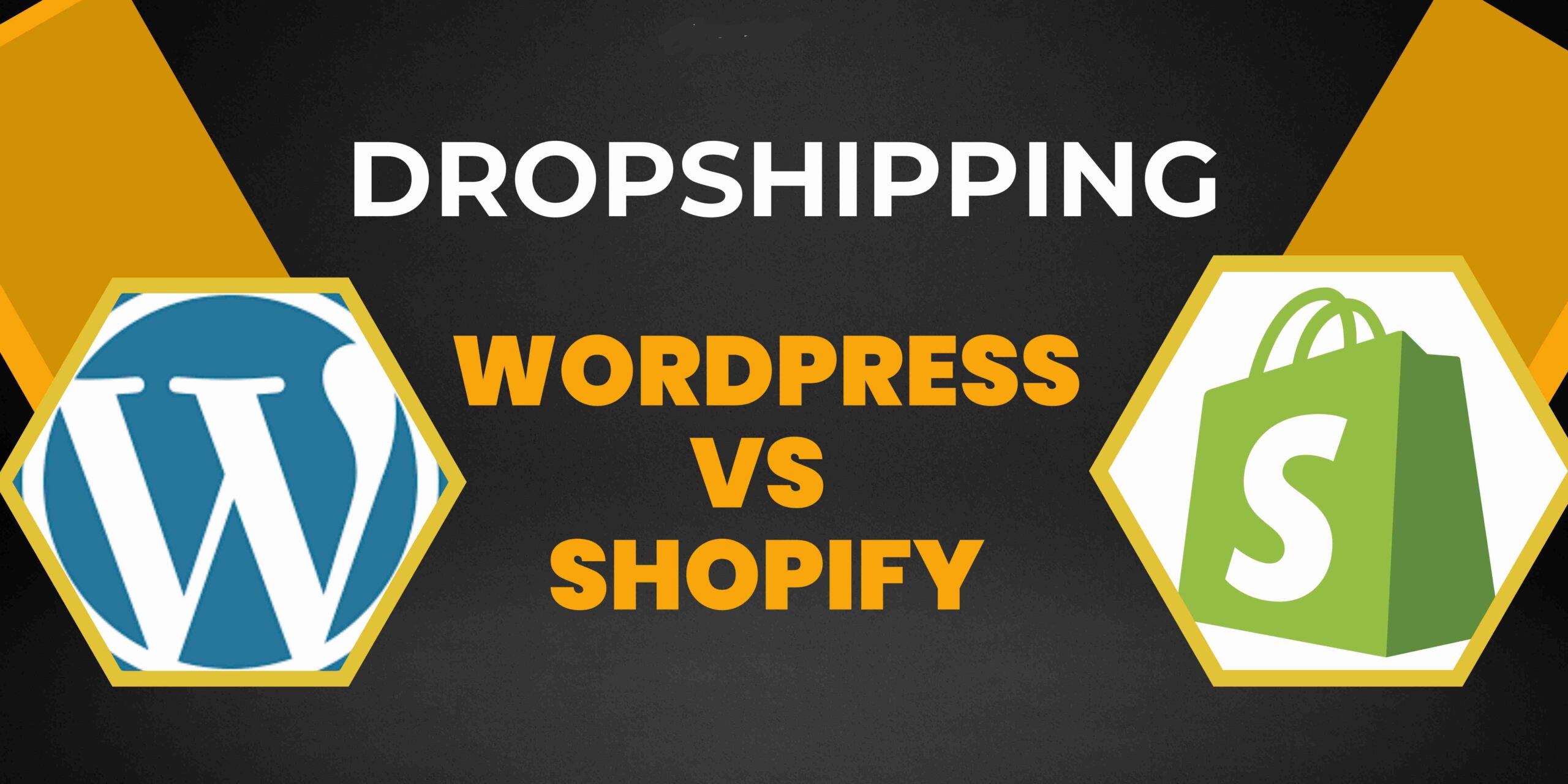+923451915524

Dropshipping has become one of the most popular ways to start an online business with minimal upfront investment. Entrepreneurs looking to get into this business model often find themselves choosing between two major platforms: WordPress and Shopify. Both have their strengths and weaknesses, but the choice between them largely depends on your specific needs, technical skills, and business goals. In this article, we’ll compare WordPress and Shopify for dropshipping to help you make an informed decision.
WordPress is an open-source content management system (CMS) that powers over 40% of all websites on the internet. When paired with the WooCommerce plugin, it transforms into a fully functional e-commerce platform, offering unlimited customization options.
Shopify is a dedicated e-commerce platform that is specifically designed for online stores. It’s a hosted solution that provides an easy-to-use interface, making it simple for beginners to set up and manage a dropshipping store.
If you’re new to web development, Shopify is known for its ease of use. It offers a drag-and-drop builder, and setting up a store is as simple as choosing a theme, adding products, and configuring payment options. Shopify takes care of hosting, security, and updates, so you don’t have to worry about the technical aspects.
WordPress is more complex and requires a bit of technical knowledge, especially when it comes to setting up WooCommerce for e-commerce functionality. You’ll need to handle your own hosting, security, and updates. However, there are plenty of resources and tutorials available to help you navigate WordPress.
While Shopify offers a variety of themes and apps, its customization options are somewhat limited. You can make changes within the confines of the available themes and apps, but deeper customizations may require advanced coding knowledge or hiring a developer.
WordPress, on the other hand, is highly customizable. With thousands of themes and plugins available, you can create a truly unique store. Additionally, you have full control over the code, allowing for limitless customization. Whether you want to tweak the design, add advanced functionalities, or integrate custom features, WordPress gives you complete freedom.
Shopify pricing starts at $39 per month for the basic plan, with higher-tier plans offering more features. In addition, you’ll need to pay for apps that extend the functionality of your store. Shopify also charges transaction fees unless you use Shopify Payments.
WordPress itself is free, but you’ll need to pay for hosting (ranging from $3 to $30+ per month depending on your needs). You might also need to invest in a premium theme, plugins, and other tools to enhance your store. Unlike Shopify, there are no transaction fees unless imposed by your payment gateway provider.
Shopify integrates seamlessly with several popular dropshipping apps, such as Oberlo, Spocket, and Printful. These apps allow you to easily import products into your store and fulfill orders automatically. The entire dropshipping process is streamlined, making it ideal for beginners.
WooCommerce also supports dropshipping with various plugins like AliDropship, WooDropship, and Printful. While the process is similar to Shopify, it may require a bit more manual setup and configuration. However, WooCommerce gives you more control over the dropshipping operations, allowing you to tailor the process to your needs.
Shopify is highly scalable, and as your business grows, you can easily upgrade to higher-tier plans with additional features. Shopify handles all server maintenance, so you don’t have to worry about site speed or downtime as you grow.
WordPress is also scalable, but you’ll need to ensure that your hosting provider can handle increased traffic and orders. As your store grows, you may need to invest in more powerful hosting, optimize your site’s performance, and manage technical aspects.
Shopify offers built-in SEO tools to help your store rank well in search engines. You can easily optimize meta tags, product descriptions, and alt text for images. Additionally, Shopify has various marketing tools, such as social media integration, email marketing apps, and discount code features.
WordPress is known for its powerful SEO capabilities, especially when paired with plugins like Yoast SEO or Rank Math. You have complete control over your site’s SEO structure, including custom URLs, meta tags, and schema markup. WordPress also offers more advanced marketing features, such as blog integration for content marketing, landing pages, and third-party marketing tool integration.
Shopify provides 24/7 customer support via live chat, email, and phone. It also has a large knowledge base and a community forum where you can find solutions to common issues.
Since WordPress is an open-source platform, there is no official support team. However, you can find extensive documentation, community forums, and third-party tutorials. If you run into issues, you may need to hire a developer or rely on the community for assistance.
When deciding between WordPress and Shopify for your dropshipping business, it ultimately depends on your priorities.
Both platforms are excellent choices, but Shopify is best for beginners or those looking for a hands-off solution, while WordPress is better for those who value flexibility and are willing to handle a bit more complexity.